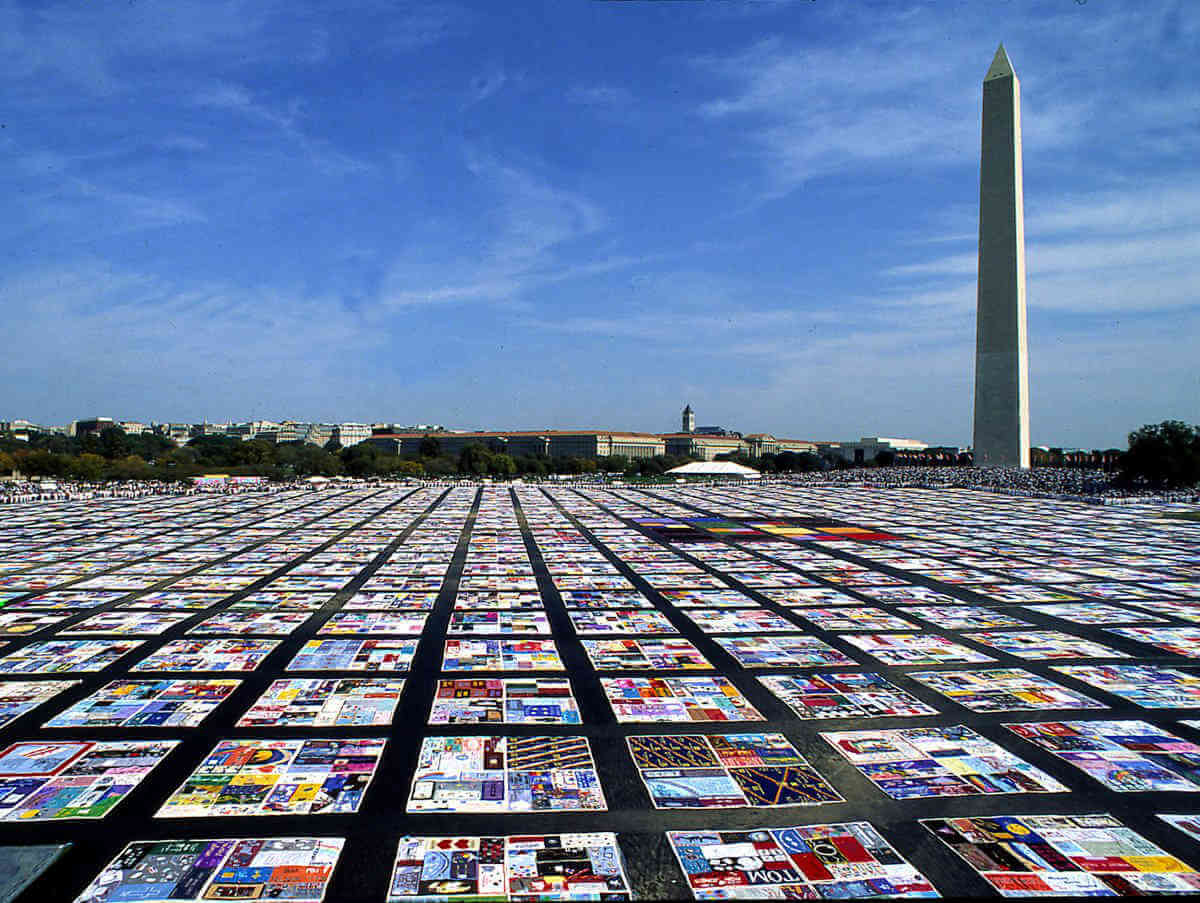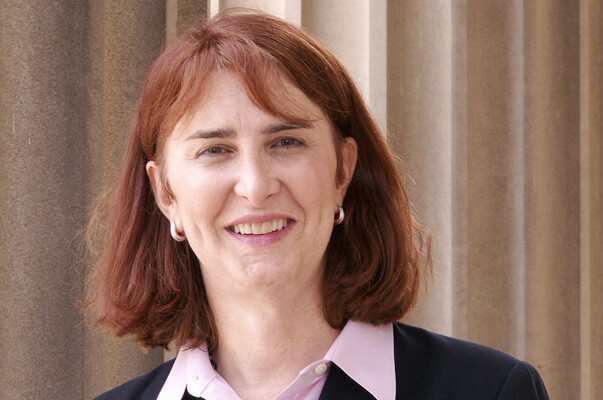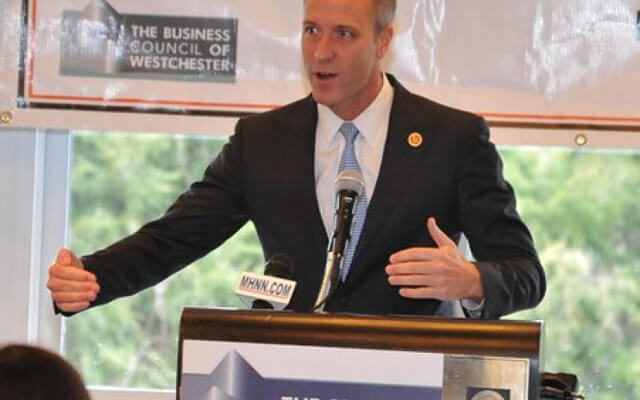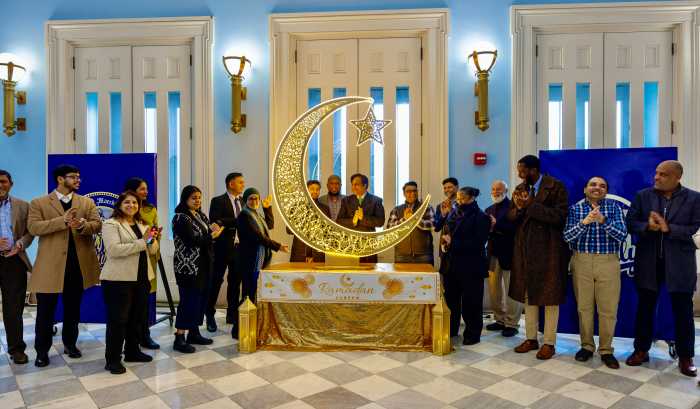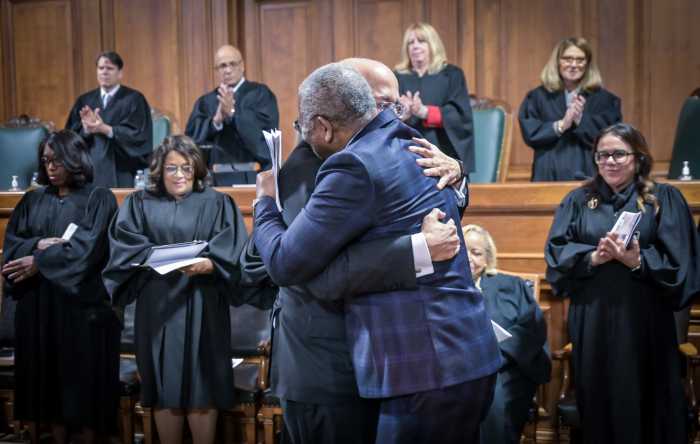More than three decades after it was created in San Francisco, the world famous AIDS Memorial Quilt is returning home for good.
The quilt will be moved from Atlanta to the National AIDS Memorial in San Francisco’s Golden Gate Park for long-term preservation and educational purposes, while related archival collections will be under the care of the American Folklife Center at the Library of Congress in Washington.
The NAMES Project Foundation, which oversaw the development of the quilt, and a slate of elected officials, including House Speaker Nancy Pelosi and Congressmembers John Lewis of Georgia and Barbara Lee of California, announced the planned move on November 20.

The idea for the quilt stemmed from a candlelight vigil and march in 1985 that was originally intended to remember the assassinations seven years earlier of out gay San Francisco City Supervisor Harvey Milk and Mayor George Moscone. Cleve Jones, who was close with Milk, asked individuals at that event to write the names of people who had died of AIDS and post the names on a wall. Jones then realized that the names looked similar to a quilt.
Roughly two years passed before Jones and his friend, Joseph Durant, acted on the idea and created individual quilts for 40 friends who had succumbed to AIDS. They then sewed quilts together and it grew in size as more folks learned about it and contributed to it. The quilt was beneficial in multiple ways because it not only served as a memorial for lost loved ones, but also generated media attention on the epidemic’s rapid spread.
The quilt has been displayed at the National Mall on multiple occasions, the first time in 1987 during the National March on Washington for Lesbian and Gay Rights. At that time, it filled a space larger than a football field and included 1,920 panels. Its display on the Mall — in 1988, 1989, 1992, and 1996, as well — were the only times it was displayed in its entirety. In 1996, it filled the entire National Mall.

According to the NAMES Project Foundation’s most recent information, the quilt currently has 49,000 panels that are arrayed on 5,956 blocks measuring 12 feet by 12 feet. It is the world’s largest community art project.
The press release accompanying the November 20 announcement stated that since 1981 636,000 Americans have died from AIDS, with more than 1.1 million currently living with HIV.
Jones, who was fired as executive director of the NAMES Project in 2004 over an apparent disagreement regarding the way the quilt should be displayed, was on hand for the November 20 announcement at the Library of Congress. He delivered a heartfelt speech during which he recalled the quilt’s origins and discussed the way in which the artwork grew over the years.

“I could not be happier and more grateful for this outcome,” Jones said. “There is no scenario I can imagine other than this never having to have happened that would bring me greater sense of peace to know that this extraordinary work of art is going to be preserved.”
Pelosi, whose Congressional district encompasses the city of San Francisco, delivered remarks at the event and remembered a time in 1987 when Jones visited her home to discuss his idea of creating the quilt. Despite having raised five children and knowing how to knit, she explained, she did not know how to sew and assumed that many others also did not.
“I say to Cleve, ‘Cleve, a quilt? Nobody sews,’” Pelosi recalled. ‘I said, ‘Cleve, I just don’t know about this project. Can’t we do something else? Like, I don’t know what.’ And he said, ‘No, this is it. We’re sticking with this.’ And, of course, look at this.”

The quilt will be on display at the National AIDS Memorial beginning in early 2020 and is slated to be a key component of a forthcoming Center for Social Conscience that will be built by the National AIDS Memorial in the years to come.

